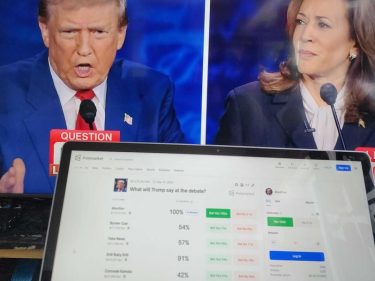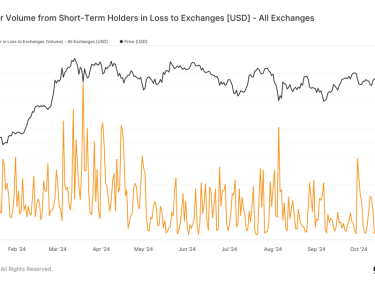A little-known rule proposed by the U.S. Securities and Exchange Commission (SEC) that is disliked by vast numbers of the finance firms — particularly banks — and vehemently opposed by the majority of the crypto industry is essentially getting revived by President Joseph Biden.
This is an excerpt from The Node newsletter, a daily roundup of the most pivotal crypto news on CoinDesk and beyond. You can subscribe to get the full newsletter here.
The House on Wednesday approved a decision to overturn the SEC’s Staff Accounting Bulletin (SAB) 121 in a majority vote. In the normal course of events, the measure would then move to the Senate, but, in an unexpected twist, Biden has warned he will veto the bill.
“This move makes such little sense that it’s highly likely the White House doesn’t even understand the issues at stake, and is just going along with a certain limited and unreasonably biased yet influential faction,” Noelle Acheson, author of the “Crypto is Macro Now” market research newsletter, said on X. “Just who is the government serving here? Who is it protecting?”
Acheson’s incredulity is perhaps justifiable. Critics have called SAB 121 “obscure,” a “diktat” and a “pernicious weed.” Since 2022, when the bulletin was posted, digital asset custodians have had to treat the assets they’re holding on behalf of clients as a liability on their own balance sheets and hold additional capital to offset those liabilities.
Crypto advocates see the rule as onerous and capital intensive, and, interestingly, so do banks and other financial incumbents. In February, major banking and securities industry bodies including the Bank Policy Institute (BPI), American Bankers Association (ABA), Financial Services Forum (FSF) and the Securities Industry and Financial Markets Association (SIFMA) wrote a letter to the SEC asking for amendments to the bulletin’s requirements.
“SAB 121 will have a chilling effect on banking organizations’ ability to develop responsible use cases for distributed ledger technology (DLT) more broadly,” the letter states. Custody is already a fairly low-margin business, and asking institutions to hold a dollar for every asset in custody, as an extra insurance on top of, just being able to keep the assets safe is a bit much.
But it’s not only industry participants that are complaining. In 2022, the U.S. Government Accountability Office (GAO) investigated SAB 121 and found that the measure warranted a congressional review because they skipped over the necessary public review and comment periods. In other words, the SEC tried to pass off a rule as a lowly memo.
This argument was then picked up by Sen. Cynthia Lummis (R-Wyo.) and Reps. Wiley Nickel (D-N.C.) and Mike Flood (R-Neb.), who posted matching resolutions to revoke the rule.
“The SEC issued SAB 121 without conferring with prudential regulators despite the accounting standard’s effects on financial institutions’ treatment of custodial assets, and the SEC issued SAB 121 without going through the notice-and-comment process,” Rep. Flood said at the time. “In the face of overreach by a regulator, it is the role of Congress to serve as a check.”
House Financial Services Committee Chair Patrick McHenry (R-N.C.) also picked up the baton to criticize an overzealous SEC, saying “because they called it staff guidance, the SEC could avoid public comment and the rulemaking process governed by the Administrative Procedure Act or APA.”
It was Flood and Nickel’s bill that Biden threatened to veto, in what is being seen as a promise to back SEC Chairman Gary Gensler. “Limiting the SEC’s ability to maintain a comprehensive and effective financial regulatory framework for crypto assets would introduce substantial financial instability and market uncertainty,” the Biden administration wrote in a Wednesday statement.
SABs are not enforceable securities law, but instead guidance for both industry participants and the SEC itself when making legal interpretations – though they do not reflect consensus among the SEC’s five commissioners. They also generally do not go through a review process, which was the problem at hand.
Speaking at a two-day “SEC Speaks” event last month, Commissioner Hester Peirce commented::
“Nobody can challenge the diktats because they’re not final agency action, but compliance is mandatory for anyone who is trying to avoid SEC delays, denials and enforcement and examination scrutiny. So everybody silently complies,” Peirce said.
“The bottom line is that rules of such broad effect should be set by the full commission, not by the staff that reports only to the chairman.”
In a better world, that may be true. But this time it seems like Biden may get the final word.




